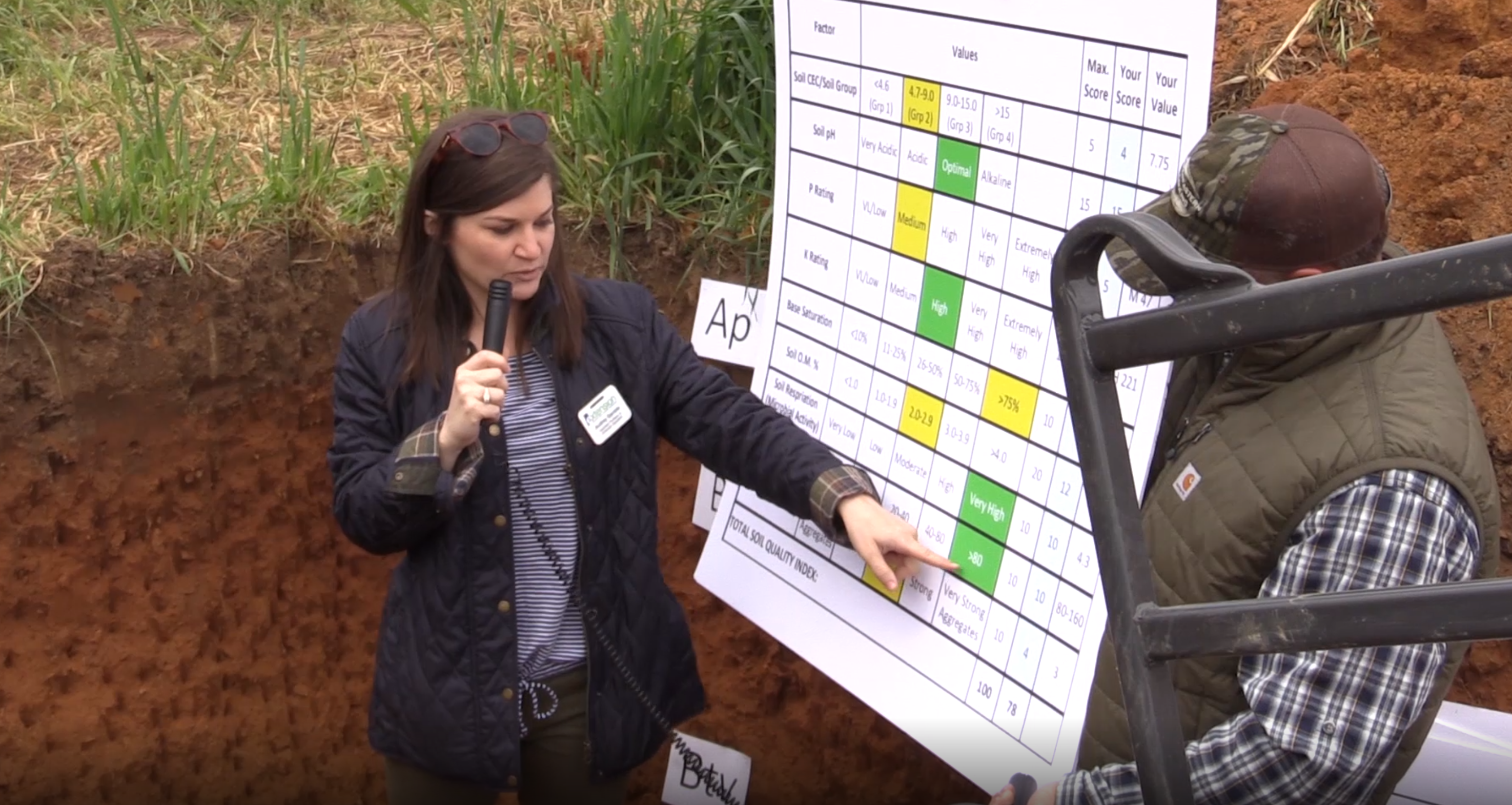COSAM News Articles 2019 October COSAM Alumna Working to Improve Soil Fertility Back at Auburn as a Young Professor in the College of Agriculture
COSAM Alumna Working to Improve Soil Fertility Back at Auburn as a Young Professor in the College of Agriculture
Raised on a farm in Headland, Ala., Audrey Gamble has always had a passion for agriculture. When combining that passion with her love of chemistry, Gamble found the perfect career as an assistant professor and extension specialist in Auburn University’s Crop, Soil and Environmental Sciences in the College of Agriculture.
As a soil scientist, Gamble works primarily with soil fertility and soil conservation. She also works with Alabama Cooperative Extension teams to provide information on these topics to row crop farmers, specifically those that produce cotton, peanuts, soybeans and corn.
“Much of my research is focused on soil fertility – determining how to best apply fertilizers to maximize crop nutrient uptake and minimize environmental loss of nutrients,” Gamble explained. “We want to provide farmers with recommendations for rates, sources and timing of application of fertilizer, so that we can increase revenue for farmers while preventing environmental pollution.”
The soil conservation side of Gamble’s research pertains to what is referred to as cover crops.
“Cover crops are crops that are grown when a cash crop is not growing,” Gamble said. “The primary purpose of cover crops is to protect the soil. So, instead of leaving fields exposed in the winter, we plant a cover crop to protect the soil from eroding during heavy rainfall events. Cover crops can provide other benefits which improve crop yields, such as weed control and increased water infiltration into soil.”
Gamble graduated with a chemistry degree from the Auburn University College of Sciences and Mathematics (COSAM) in 2011 and a master’s in soil chemistry in 2013. She then transferred to the University of Delaware where she earned her Ph.D. in environmental soil chemistry in 2017. She began her career at Auburn University soon after.
“When she was working in the lab with my research group, I knew Audrey was a very bright and talented chemist with a promising future," explained Professor in the Department of Chemistry and Biochemistry Anne Gorden. "I found out that - while she was working in my lab to complete her major, she had also started working in soil science, first for a paying job, but then because she found her passion in soil analysis and soil fertility. I am so proud that she has been able to turn her talents and what she learned in her time in chemistry into an outstanding career in ag.”
Gamble also oversees four graduate students and conducts soil research in a variety of Alabama locations to understand how a crop would respond in different climates and soil types.
Outreach is also an important aspect of Gamble’s job. She speaks at crop production meetings throughout the state, answers phone calls, and writes published materials to assist farmers in preparing for upcoming crop seasons.
“If we are not communicating research to producers, then I don’t see a point in doing it,” she explained. “As a land grant university, Auburn University has three missions – education, research and outreach. A large part of my job is outreach to provide research-based information that helps farmers. Farmers have very thin margins off of which to make profit, so anything they can do to increase yields or minimize costs is something that can benefit not only the producers, but the economy in the state as well.”
Gamble said some of the aspects of her job she enjoys most is the combination of working in the field and in the lab.
“My job is never boring” she said. “I travel the state quite a bit – and I get to meet a lot of great people.”
Gamble added that she feels her COSAM education prepared her well for her current career. She remembers her time working in Dr. Anne Gorden’s lab and Dr. Vince Cammarata’s lab as highlights.
“To this day, some of the research I am most proud of is analyzing soils from Toomer’s Corner after the oaks were poisoned,” she said. “We ran analyses to determine how deep herbicides had spread – that information was then used to determine how much soil needed to be excavated from the site.”
Gamble added that she believes a science background is a necessity for studying crop, soil or environmental sciences.
“I think people don’t realize how much chemistry is involved,” she said. “COSAM definitely provided the foundation of knowledge I needed to complete my masters and doctoral degrees and continue my career in research.”
Latest Headlines
-
07/09/2024
-
Summer Bridge Program celebrates 21 incoming Auburn students as they prepare for future STEM careers07/02/2024
-
07/02/2024
-
06/17/2024
-
06/07/2024


